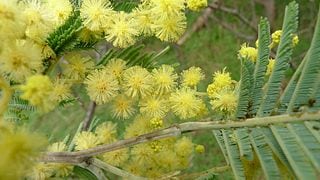
The end of August and beginning of September is traditionally linked to the beginning of Spring in Australia, although the change in seasons is experienced in different ways in different parts of the country and was marked in locally appropriate ways by Aboriginal people. As a uniquely Australian celebration of Spring, National Wattle Day, celebrated on 1 September since 1910, celebrates the flowering of these uniquely Australian trees, as well as Australian identity.
 Not strictly speaking within this week, but close enough to be included: it was 22 August, 1770, when James Cook claimed the East Coast of Australia for Britain, planting a flag on the island he called “Possession Island“.
Not strictly speaking within this week, but close enough to be included: it was 22 August, 1770, when James Cook claimed the East Coast of Australia for Britain, planting a flag on the island he called “Possession Island“.- On 29 August, 1862, Andrew Fisher, who became the 5th Prime Minister of Australia after Federation and served 3 terms (1908-1909; 1910-1913 and 1914-1915) was born in Scotland in the UK. Fisher had started working in coal mines at the age of 10 and went on to be the leader of the Australian Labor Party between 1907 and 1915. Fisher came out to Australia and worked on the gold mines at Gympie. The cottage in which he lived is a heritage-listed building and can be visited as part of the Gympie and District Historical Society Mining Museum.
- On 30 August, 1835, John Batman, with a party of settlers including John Pascoe Fawkner, landed at the mouth of the Yarra River and established a settlement on the site where the current Melbourne Immigration Museum is situated. This settlement later became the city of Melbourne.
- Also on 30 August, 1853, the last convict ship to travel directly from Ireland to Australia, the Phoebe Dunbar, arrived in Fremantle, Perth. England continued to send convicts for another 15 years.
- 31 August, 1933, the township of Stuart in the Northern Territory was renamed Alice Springs.
- 1 September, 1874, was the day that the General Post Office opened in Sydney. It was the first building purpose-built as a post office in Sydney and was controversially positioned over the Tank Stream, which had provided early Sydney with its drinking water.
- A rather unique incident occurred on 1 September, 1846. John Ainsworth Horrocks was an explorer who founded the village of Penwortham in South Australia. Whilst on an expedition in north-west South Australia, he stopped to reload his shotgun. He was busy with this task when a sudden lurch from Harry, his camel, discharged the gun, fatally injuring Horrocks.
From a celebration of Spring to a man who was shot by his camel, there are plenty items of potential interest to students this week. These can also be aligned to aspects of the Australian curriculum. Why not celebrate wattle day in your classroom? Have the students bring in wattle flowers. Younger students can talk about changing seasons, Australian celebrations and draw the flowers; older students can examine Australian identity, Federation and the creation of a separate identity from Britain in the early 20th century. Students in Victoria and New South Wales can also examine the events of particular significance to their state.

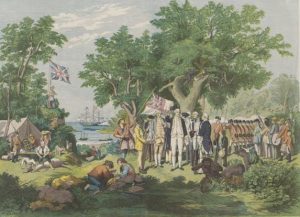 Not strictly speaking within this week, but close enough to be included: it was 22 August, 1770, when James
Not strictly speaking within this week, but close enough to be included: it was 22 August, 1770, when James 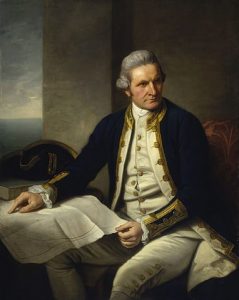
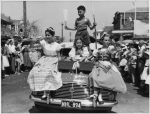 6th June: This year Wednesday 6 June was marked by the opening match of the annual State of Origin rugby league series between the NSW Blues and the Qld Maroons. Whilst rugby league has its own fascinating
6th June: This year Wednesday 6 June was marked by the opening match of the annual State of Origin rugby league series between the NSW Blues and the Qld Maroons. Whilst rugby league has its own fascinating 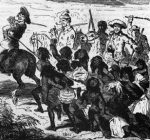 10th June: A more tragic event in Australian history is the
10th June: A more tragic event in Australian history is the  11th June: On this day in 1770,
11th June: On this day in 1770, 
 It is the time of year when the thoughts of teachers of students in years 3, 5, 7 and 9 turn (not so) lightly to NAPLAN. I’m sure many of you are aware of the controversial
It is the time of year when the thoughts of teachers of students in years 3, 5, 7 and 9 turn (not so) lightly to NAPLAN. I’m sure many of you are aware of the controversial  Perelman had been asked to review the planned robot-marking of NAPLAN essays in October 2017, and his criticism was so harsh that the plan was scrapped. ACARA seems to be taking Perelman’s concerns seriously. ACARA have stated that they believe that teachers focus on building and expanding the vocabulary of students and students should be able to use this vocabulary in “meaningful, constructive ways”. It seems certain that ACARA will re-evaluate the marking of NAPLAN essays in the face of these criticisms.
Perelman had been asked to review the planned robot-marking of NAPLAN essays in October 2017, and his criticism was so harsh that the plan was scrapped. ACARA seems to be taking Perelman’s concerns seriously. ACARA have stated that they believe that teachers focus on building and expanding the vocabulary of students and students should be able to use this vocabulary in “meaningful, constructive ways”. It seems certain that ACARA will re-evaluate the marking of NAPLAN essays in the face of these criticisms. Teachers have already reported to us that they find these
Teachers have already reported to us that they find these 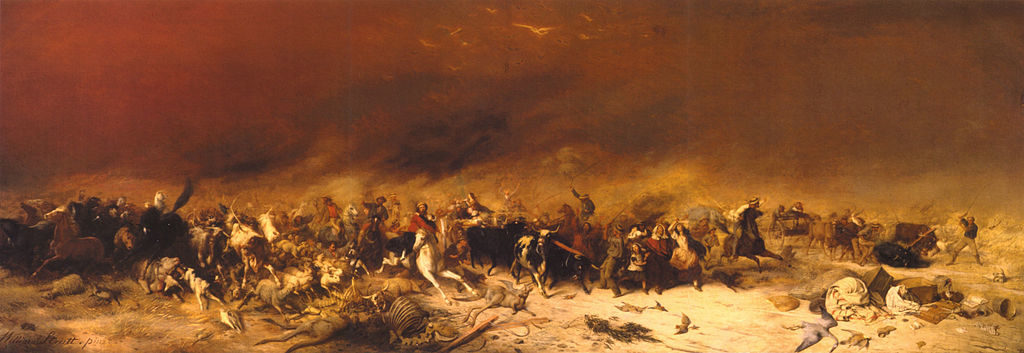
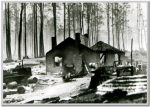
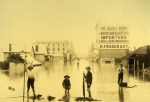
 The modern Olympic games were started by Frenchman Henri de Baillot-Latour to promote international understanding. The first games of the modern era were held in 1896 in Athens, Greece. Australia has competed in all the Olympic games of the modern era, although our participation in the first one was almost by chance. Of course, the Olympics predated Federation by 5 years, so there was officially no “Australia” as a unified country – rather a collection of separate colonies of Britain. In fact, OpenSTEM®‘s
The modern Olympic games were started by Frenchman Henri de Baillot-Latour to promote international understanding. The first games of the modern era were held in 1896 in Athens, Greece. Australia has competed in all the Olympic games of the modern era, although our participation in the first one was almost by chance. Of course, the Olympics predated Federation by 5 years, so there was officially no “Australia” as a unified country – rather a collection of separate colonies of Britain. In fact, OpenSTEM®‘s 


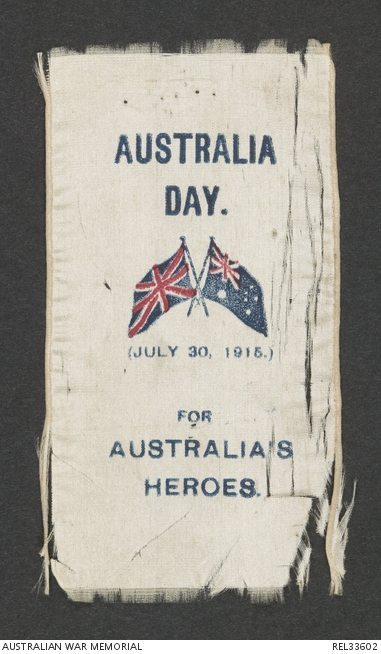
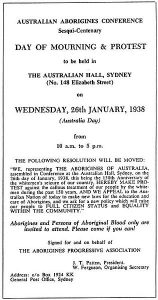
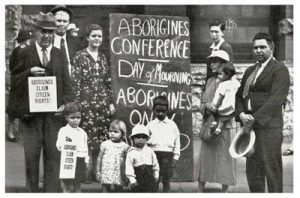
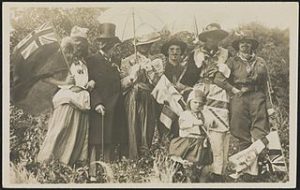 The Sydney Morning Herald of 17 June, 1915, announced that this was supported by the Premier of NSW, and various of his ministers. The date was set for this celebration for 30 July, 1915. Many states turned the celebration into a giant pageant or carnival, some incorporating it with the state’s agricultural Exhibition for that year. The day was celebrated on 28 July, 1916; 27 July, 1917 and 26 July, 1918. Each year the celebration got bigger, with cake stalls, refreshment stands, bands, concerts, demonstration sports, etc. and people dressed in a myriad of costumes. The fund-raising was a huge success too, with figures of £120,000 being mentioned – an enormous sum of money at that time!
The Sydney Morning Herald of 17 June, 1915, announced that this was supported by the Premier of NSW, and various of his ministers. The date was set for this celebration for 30 July, 1915. Many states turned the celebration into a giant pageant or carnival, some incorporating it with the state’s agricultural Exhibition for that year. The day was celebrated on 28 July, 1916; 27 July, 1917 and 26 July, 1918. Each year the celebration got bigger, with cake stalls, refreshment stands, bands, concerts, demonstration sports, etc. and people dressed in a myriad of costumes. The fund-raising was a huge success too, with figures of £120,000 being mentioned – an enormous sum of money at that time!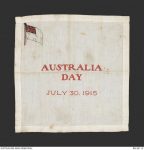 3 March (commemorating the Australia Acts 0f 1986, removing the
3 March (commemorating the Australia Acts 0f 1986, removing the 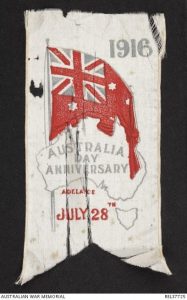 9 July – the date that Queen Victoria gave her royal assent to the
9 July – the date that Queen Victoria gave her royal assent to the
Since implementing this program I've really noticed how the students are improving.
Trent Perry, Teacher